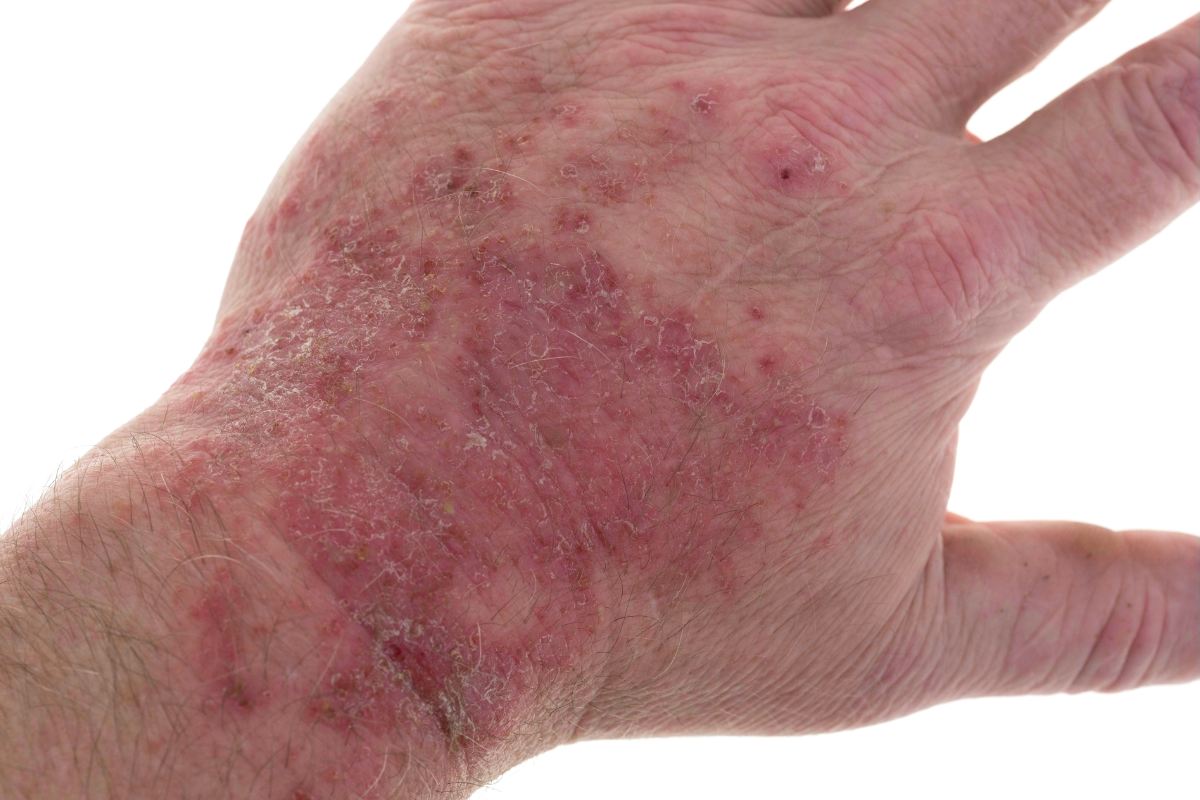Rash is a very common skin disorder, which could cause bumps,red or purple skin, itching, usually with burning sensation and pain. Some skin rashes may appear in small patches on the body, and others could cover a larger area.
There are many causes of rashes, including skin allergies, infections or reactions to medications. Although most rashes are not serious, it is very important to figure out the type of your skin conditions. Common rashes include atopic dermatitis, chronic plaque psoriasis, hives and shingles. You may be very confused with various rash types. Read the introduction below and get a better understanding.
Eczema
The most common type of skin rashes is eczema, which also known as atopic dermatitis. Eczema is often characterized by dry, itchy and red skin. Pay attention to itchy red patches or bumps on your arms, elbows, hands or legs, which could be a early sign of eczema. Atopic dermatitis eczema treatment depends on severity, and includes home remedies and drug medication.
Psoriasis
Psoriasis is different from eczema. One common symptoms of psoriasis is skin red patches or spots. Also, psoriasis patients is likely to have the feeling of pain, skin burning and itching. Besides, psoriasis skin may be covered with thick and silvery scales. Some people could suffer from other problems such as thickened nails and swollen joints. Chronic plaque psoriasis is the most classic type of psoriasis and it is hard to cure.
Hives
Hives,also known as urticaria, is a common kind of skin rashes. It can cause skin burning,itching and red welts. In general, hives doesn’t last very long time. They usually go away without treatment.
Shingles
Shingles is a skin disease caused by viral infection. Symptoms include painful, red and itchy skin. it’s often presented as a stripe of blisters. Today, shingles vaccine is a very helpful way to prevent this problem.
At present, there are many ways to treat all kinds of skin rashes. You can try some remedies and change your lifestyles: drink more water; take a warm shower; try some bath oils and creams and use a home humidifier. If these treatments don’t work or your skin conditions get worse, then you could try some over-the-counter ointments or creams. And go to the doctor when at-home remedies and creams are not effective.




